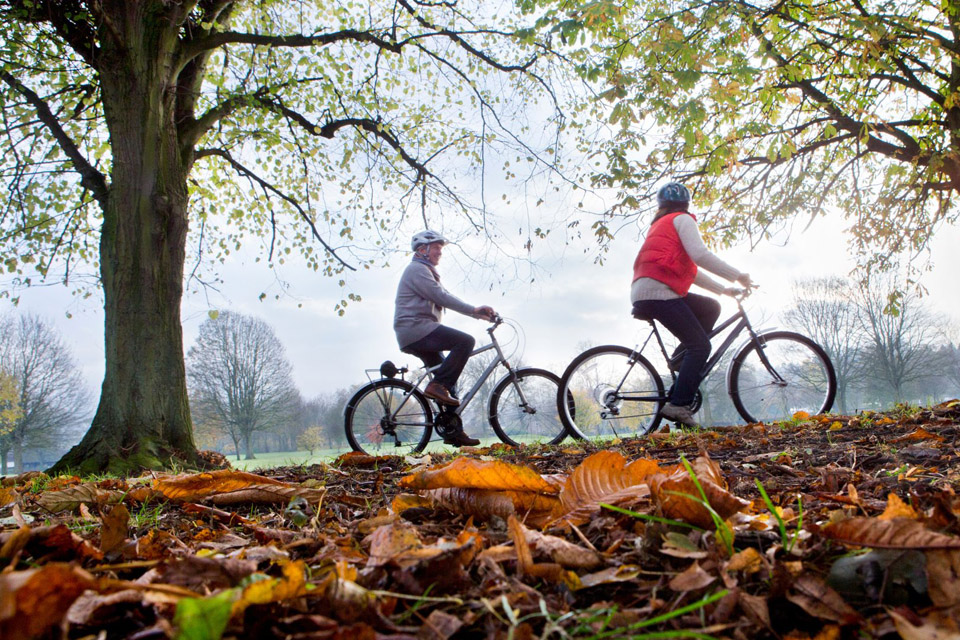Autumn is one of the most beautiful seasons in nature; the cooler air, colorful foliage, and fresh scents create a special atmosphere for outdoor activities. Many people tend to retreat to the couch at this time of year, yet spending time in the fresh air revitalizes both the body and the mind. But why is exercise in autumn particularly healthy, and what types of activities are worth choosing during this season?
Many people believe that outdoor exercise is especially healthy during the autumn months. The autumn air is cool yet clean and rich in oxygen, making it ideal for training the body and relieving stress. Being close to nature helps reduce anxiety and tension, while physical activity also stimulates the immune system.
Physical activity in the fresh air boosts circulation, supports lung function, and promotes better sleep. Moreover, spending time in nature has been proven to improve mental health, especially during the darker, more stressful months.
Recommended activities for the cooler months
Hiking:
One of the best autumn activities, hiking strengthens muscles while calming the mind. Short walks or longer hikes can help you feel more energized.
Nordic walking:
A gentle yet effective full-body exercise that strengthens the back and shoulder muscles, improves posture, and is particularly recommended for those with sedentary jobs.
Cycling:
Even in cooler weather, cycling can be enjoyable with the right clothing. It improves endurance, is easy on the joints, and can make for a perfect weekend family activity.
Jogging or brisk walking:
Autumn runs and brisk walks not only boost physical fitness but also improve mood, helping you prepare for winter both mentally and physically.
Tips for safe autumn exercise
The atmosphere of autumn exercise is truly unique – cool air, colorful leaves, and quiet forest trails provide the perfect backdrop for physical activity. However, during this season, the body requires extra attention. Due to fluctuating temperatures, it is advisable to dress in layers, which helps prevent overheating during exercise and protects against catching a cold during short rest periods. Warming up is particularly important in cooler weather: muscles can be stiffer in the cold, so a few minutes of light cardio can prevent discomfort and injury.
Many people forget that proper hydration is essential even in colder weather, as the body still loses water. For early evening activities, visibility is also crucial; reflective clothing or bicycle lights can literally save lives as darkness falls quickly.
If you notice unusual fatigue, slower recovery, or decreased performance, it may be worthwhile to undergo a laboratory test to check for underlying iron or vitamin D deficiencies, or other metabolic imbalances. At the HR-Pharma laboratory in Szeged, you can quickly get an accurate picture of your body’s condition without a referral, ensuring that your autumn exercise is all about revitalization rather than exhaustion.
At HR-Pharma’s Szeged lab, you can promptly request a complete blood count, iron, vitamin D, and electrolyte tests without a referral. These tests help identify any underlying deficiencies or metabolic issues.
Frequently Asked Questions
Is exercising in cold weather dangerous?
Not at all, if properly prepared. Layered clothing, a thorough warm-up, and gradually increasing intensity help prevent colds and muscle strains. It is also important to change out of damp clothes as soon as possible after exercise and to replenish lost fluids.
What type of exercise is recommended for someone restarting workouts in autumn?
After a long break from physical activity, it is best to start with gentle forms of exercise, such as brisk walking, light hiking, or Nordic walking. The goal is to gradually build endurance, not to push performance immediately. It is also advisable to check your body’s capacity with a laboratory test.
What signs indicate that the body is overworked or exhausted?
Persistent muscle soreness, sleep disturbances, fatigue, dizziness, or mood changes after exercise may indicate overstrain. In such cases, it is recommended to take a break and, if necessary, undergo laboratory testing to rule out iron deficiency, electrolyte imbalance, or vitamin D deficiency. HR-Pharma’s blood sampling points in Szeged offer fast testing for these parameters without requiring a referral.



